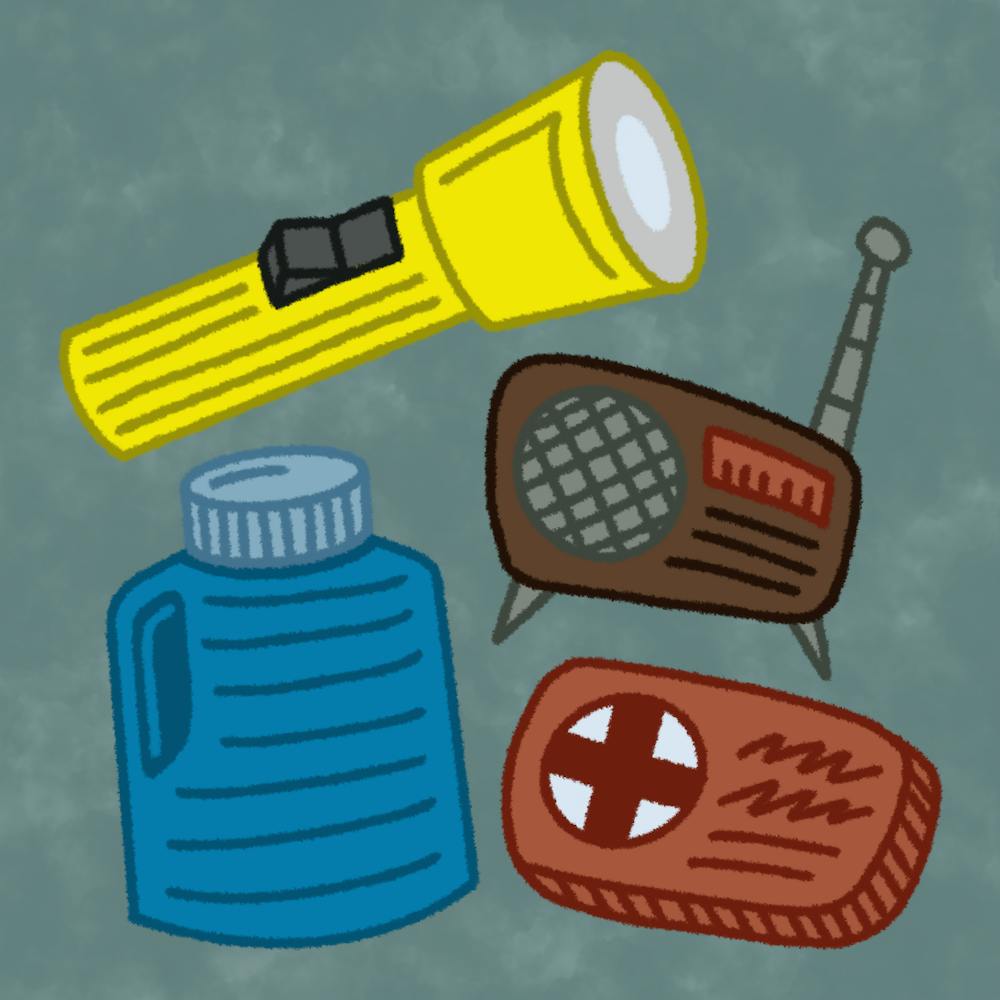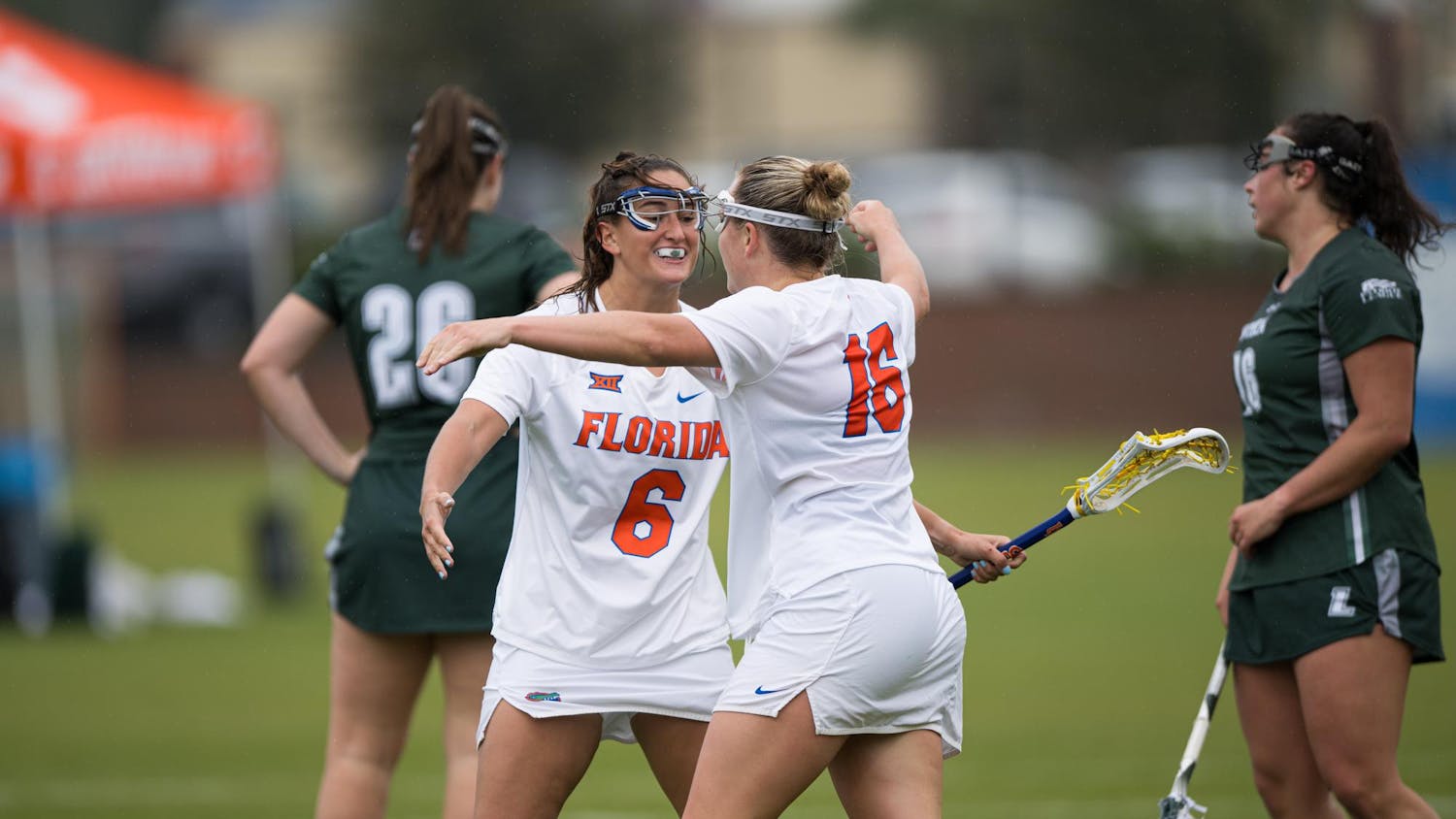Currently, most Gators are focused on football, exams and costume planning for Halloween. Few are thinking about hurricanes.
But Florida is just halfway through the 2024 storm cycle, and peak season still lies ahead.
Changing environment, impending storms
According to the National Oceanic and Atmospheric Administration, climate conditions are optimal for tropical activity. This year’s July heat was record-breaking, and ocean temperatures are abnormally high. Right now, water churning in the Atlantic hovers above 80 degrees Fahrenheit, nearly hot enough to melt chocolate.
Nineteen-year-old UF environmental science sophomore Alex Spiller studies the relationship between climate and weather patterns. Originally from Coral Springs, Spiller had a front-row seat to Hurricane Ian in 2022. In the storm's aftermath, she said her hometown was barely recognizable — small businesses shuttered, black mold festered in people’s homes and rescue helicopters from the National Guard buzzed overhead.
Spiller said Ian was just the beginning, and tropical storm activity is poised to intensify.
“If it keeps getting worse, especially for those coastal areas, people in Gainesville [should] be concerned,” she said, adding that an influx of people flocking to the city from waterfront areas will soon become overbearing. “Naturally, that will happen as houses literally start going into the ocean.”
Homeowners contend with soaring insurance premiums
Increasingly intense storm activity brewing off Florida’s coast has created a climate-reactive insurance bubble.
Longtime Gainesville homeowner Sheryl Eddie has seen her insurance premium double in recent years.
Eddie, co-proprietor of local bistro Cindy B. Goods, has lived in the city for 34 years. She is also a realtor who works with clients dismayed by the rising cost of disaster coverage.
“There is a heck of a lot of price gouging and a heck of a lot of, I would say, insurers getting away with murder, and our legislature let them,” she said.
Hurricane Ian was the state’s deadliest hurricane since 1935 and its costliest in history. Though it just grazed Gainesville, Ian caused $60 billion in insured damages statewide and $100 billion in losses, after which insurers fled the state in droves — some went insolvent.
Following Ian in 2022, Florida Senate Bill 2D made sweeping changes to state insurance. It mandated insurers inspect homes with roofs older than 15 years before deciding whether to retain or drop a policyholder.
Eddie, who hasn’t replaced her roof in decades, said she now has to worry.
“Gee, my 30-year roof is no longer good for 30 years,” she said.
Gainesville’s more transient residents aren’t as troubled.
Renters rest easy, taking minimal precautions
Zachary Sotomayor, a 21-year-old UF applied physiology and kinesiology senior, lives in the student housing center Legacy at The Standard. On rare occasions when the local weatherman says storms are tracking this way, Sotomayor tops off the gasoline in his car and parks it under cover.
He said he and his roommates split the cost of water and shelf-stable foods, each spending about $60 to $70.
Antoine Angrum, 34, works at the Gate gas station on 13th Street and rents a home in Micanopy. Angrum said he doesn’t spend much time or money preparing his property for hurricane season because he already has storm readiness essentials, like non-perishable food and flashlights.
A generator, he added, is beneficial when storms knock out electricity.
“It will rain a little drop, and then my power will be out,” he said.
Angrum said he is fortunate to have reasonably priced renter’s insurance, so he doesn't have to worry about paying for storm damage out of pocket.
Critters find refuge inside
Far inland, Gainesville is insulated from the brunt of hurricanes, but disasters bring pests out of the woodwork.
Last month, the Florida Department of Health issued a series of press releases documenting cases of West Nile Virus in nearby Marion and Duval Counties. Eight in 10 carriers are asymptomatic, meaning they are likely to spread pathogens unknowingly.
The FDOH advises the public to drain standing water from receptacles like birdbaths, gutters and garbage cans and suggests covering exposed skin with clothing and insect repellent.
Roberto Pereira, a UF urban entomology extension professor who studies the intersection between insects and cityscapes, said increased infection risks abound, even in areas that receive only the outer bands of hurricane rains.
Pereira said conditions during Florida’s wet months are conducive to mosquitos, which can breathe in as little as a “bottle cap full of water.”
“For the mosquitoes and the flies, they are breeding very fast and [becoming] very numerous after the storm,” he said. “Ants are not multiplying themselves that fast, but they are moving from wet areas that are now too wet to areas that are not as wet.”
When high winds send garbage flying during intense storms, Pereira added, bugs congregate to feast on food scraps. Tree-hole mosquitoes, he said, feed on trash and develop from larvae to adults in a single week.
“We get that feeling of being swarmed by mosquitoes because that's exactly what's happening,” he said, “because they all come out together after a good rain like this.”
While rising seas, skyrocketing costs, damage and disease are not top-of-mind concerns for most locals, the city closely tracks hurricane threats.
Gainesville offers Alert GNV, an emergency notification system that updates residents about community news and essential disturbances, including severe weather and road closures.
Constituents have access to around-the-clock assistance. The city’s public works director, Brian Singleton, said in a City Commission meeting Aug. 8, “We stand ready to respond to any event 24/7, all the time.”
Contact Natalie Kaufman at nkaufman@alligator.org. Follow her on X @Nat_Kauf.
\
Natalie Kaufman is the business enterprise reporter and a second-year journalism major. Outside the newsroom, you'll catch her drinking too much caffeine and running.






